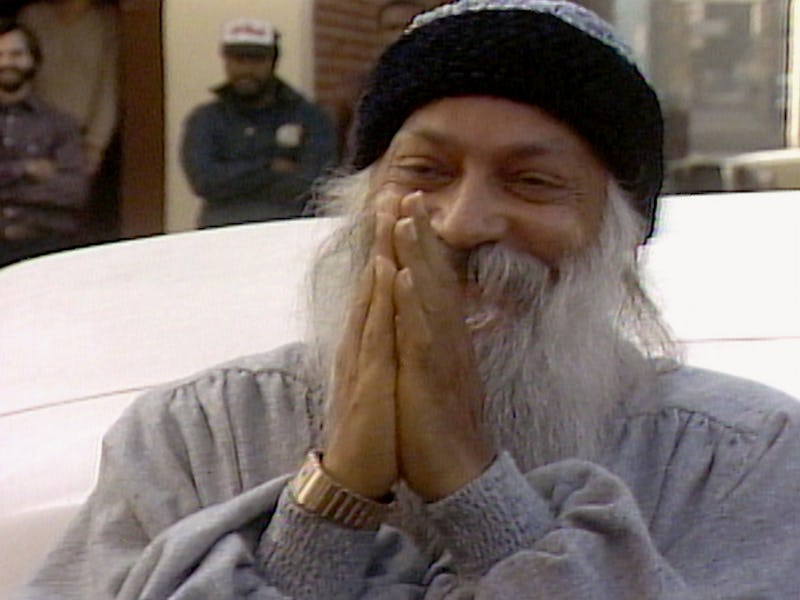'Wild Wild Country': What Does the Rajneesh Movement Believe?
It's a bit complicated.

Since its release in mid-March, Netflix’s six-part docuseries Wild Wild Country has generated significant chatter — and deservedly so. It follows the story of the community of Rajneeshpuram, a self-sustaining commune established in the Eighties in Wasco County, Oregon. But even after spending hours with the subject matter, significant questions arise around the actual ethos of the movement and the influential characters at the movement’s center.
The series, directed by brothers Maclain and Chapman Way, follows the controversial spiritual guru Bhagwan Shree Rajneesh (who later came to be known as Osho) and his devoted confidant and spokesperson Ma Anand Sheela, as well as others in his immediate circle. While some of the movement’s followers (called sannyasins) continue to assert otherwise, the Rajneesh movement has been labeled a cult by critics of its controversial subversion of traditional family values.
This post does not contain spoilers for Wild Wild Country, so far as spoilers for real events are a thing
The OSHO International Foundation, which maintains active headquarters at its Meditation Resort in Pune, India, outlines Bhagwan’s teachings on its website. He advocated heavily for meritocracy, the advancement of science, sexual liberation and nonconventional partnerships, euthanasia, genetic engineering, and universal love. In theory and in its teachings, the Rajneesh movement essentially leaned libertarian. It also centered heavily on the practice of meditation.
“[I]f the whole government is meditative, deprogrammed, unprejudiced — just visualize it — then bureaucracy disappears, hierarchy disappears; then things that take years can be finished within seconds,” Bhagwan said.
Specifically to the movement’s controversial postition on free love, and as Vulture points out in its coverage of Wild Wild Country, Rajneesh spokesperson Ma Prem Sunshine (also known as Sunny V. Massad) asserted in archival footage used in the docuseries that there was no formal policy on the matter. Bhagwan himself is quoted as saying: “The more sexual a person is, the more intelligent. With less sex energy, less intelligence exists; with more sexual energy, more intelligence, because sex is a deep search to uncover, not only bodies, not only the opposite sex body, but everything that is hidden.”
Without spoiling Wild Wild Country’s many twists and turns and the lead-up to the eventual fall of its rural Oregon commune, it’s worth noting that the movement’s mission and objectives shifted wildly from its original roots. And don’t be fooled, the series is worth every minute of its nearly seven-hour runtime.
Wild Wild Country is currently available to stream on Netflix.